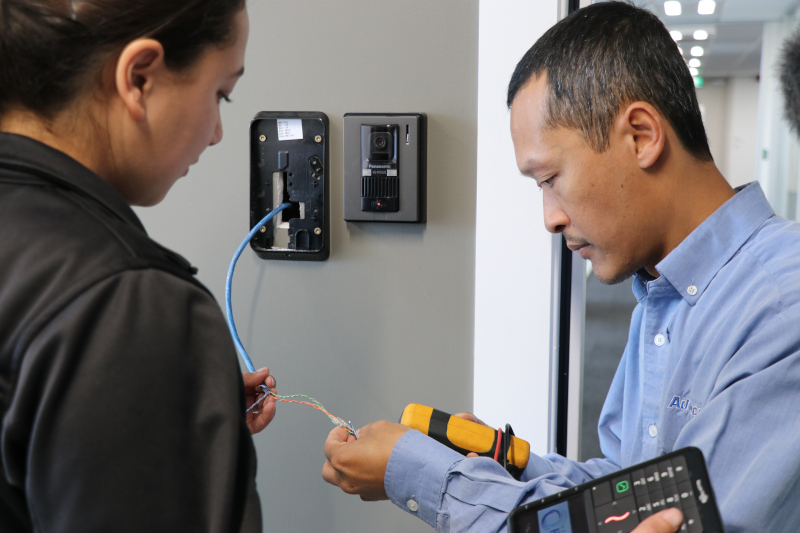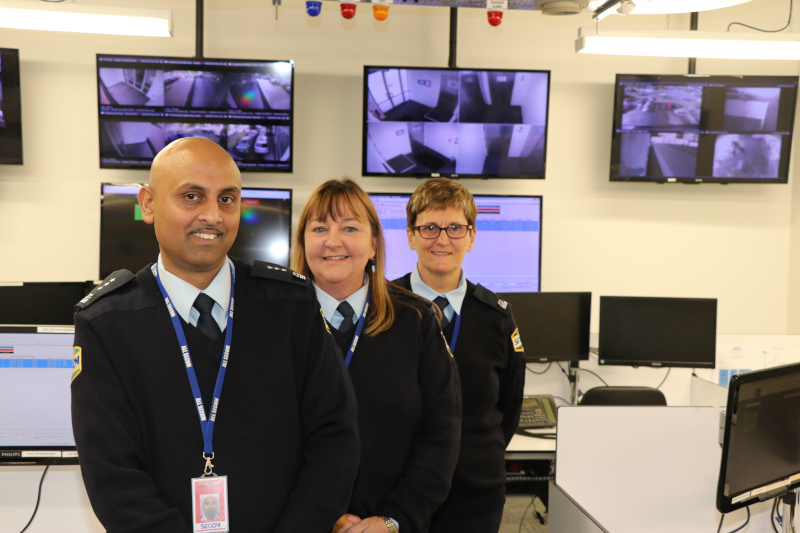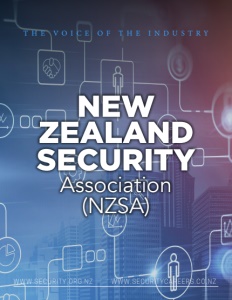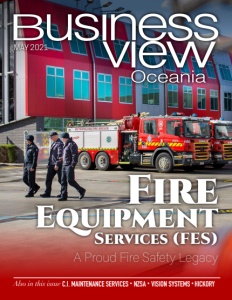New Zealand Security Association (NZSA)
The voice of the industry
Business View Magazine interviews Gary Morrison, CEO of New Zealand Security Association, for our focus on the Security Industry in New Zealand
In these trying times, security is big business and critical to people’s overall safety and wellbeing and New Zealand Security Association (NZSA) is proud to be the voice for this incredibly essential sector. NZSA is the largest industry representative body for the security industry in New Zealand. Its voluntary members include security companies ranging from large multi-nationals to sole traders.
The New Zealand security industry is worth an estimated $2.8 billion dollars with more than 1400 security companies operating in the country. Numbers that continue to grow annually. Business View Oceania recently spoke with Gary Morrison, CEO of NZSA, for his perspective about the Association’s role in this evolving industry sector.
BVO: How has NZSA evolved over the years?
Morrison: “We started in 1972, next year will be our 50th anniversary. The organisation was formed by the largest security providers at that time, with the common interest of having a voice for the industry. Today we have approximately 250 members who represent about 85 percent of the industry, in terms of employees and revenues. The key areas we focus on are: advocacy – determining government policy that impacts our industry, particularly from licencing; ensuring our industry training is fit for purpose for the employers and employees; and lifting standards – be it through guidelines or good practice documents, there is a focus on continuous improvement and operating to best practice standards.
“The other area that has become more important recently for us is finding good workers for our members. There is a labour shortage in New Zealand at the moment, and COVID-19 has had an effect on the workforce as well. Traditionally, we’ve had immigrants coming into the country to fill some security roles; with that tightening up, our members have found it difficult to recruit good people. So we work actively with schools – educating students on security career options. We also act as an employment agent with MSD (Ministry of Social Development), which is New Zealand’s government agency that looks to take people off the benefit and put them into employment.”

BVO: What are the biggest challenges for the industry?
Morrison: “One of the challenges for us is defining who we represent. When you talk about security, people have a different mindset or view as to what we’re talking about. For a lot of people it brings to mind a picture of a security guard outside a bank or at a mall. And part of the challenge for us is educating people that security is far wider than that – we get involved in cyber security; a lot of our members are involved in electronic security – providing alarms, access control, CCTV, etc. By definition, we cover our members who fall within New Zealand licencing. We don’t traditionally cover those who manufacture equipment, but we do for those who install equipment. We also cover those who supply personnel providing personal security services, like security officers.
“We’ve started going into the schools and talking to young people who are near the age of graduating about what careers are available in the industry. As part of that we’ve just launched a virtual reality training platform that is specific to security officers. But it also shows the kids that we’ve got new learning tools and it catches their interest. In conjunction with that we’ve developed a new Security Career Pathways website, which provides a pictorial pathway through some of the career opportunities that exist. It includes information on what training is required, what the school levels are, what the pay levels are, etc. So that’s providing a very good tool for educating people as well.”
BVO: How do you communicate with your membership?
Morrison: “We have an annual awards event rather than a conference. A lot of New Zealanders will go across to Australia or to the U.S. and attend their large conferences. So we felt it was better to support and promote some of those overseas conferences rather than trying to do our own and not getting particularly good representation. We do have a bi-monthly electronic newsletter, which provides a fairly significant update to our membership as to what’s happening in the industry. During the height of the pandemic, we had communications going out almost daily in some stages – updating on government policy and the implications on our members. Feedback showed that they found it a good conduit for providing information and very valuable. So we really focused on that relevancy of information and looking at what’s going on in the conferences that happened in the last year. It’s been the best source for our members to find out what’s happening around the world.
“We also run several special interest groups that bring those members together on a common interest. One of those is around training and professional development; putting aside their own company agendas and just looking at what’s good for the industry. Certainly, a big part of that is networking and getting to know each other and what their issues are.
“As part of our member benefit programs, we offer access to advice and templates around health and safety. We also run a free HR advisory service and a free business continuity template program. Where we can, we try to make our benefit programs free. And part of the rationale for that is to help small companies that don’t have that resource. Large companies have their own team of HR specialists in-house. For the smaller providers that’s a significant cost and a risk for them. So we try to make the programs free where we can.”

BVO: How is the industry changing with regard to technology?
Morrison: “When you talk about guarding, you talk about a person doing something that may use technology to assist in doing the job better and perform it more safely. From that side of the business, it is still a very person-driven operation. When we come down to the electronic systems, technology has changed a lot – we now have things like facial recognition, etc. which is certainly a quantum leap forward from what was available 15 to 20 year ago. I’ve talked to a few companies who admit that security isn’t a sexy business but also, perhaps, people don’t have an appreciation for some of the areas we do get involved – in around the electronic side, for example.”
BVO: What role does NZSA play in government relations for the industry?
Morrison: “We come under the purview of the Ministry of Justice and we have a very good relationship with our ministers. We have regular meetings with them; we certainly advocate for the Ministry. There are several areas where we get involved with statutory committees but it seems to be more on advocacy, rather than directly contributing towards policy development.
“Two recent issues come straight to mind. One was around our licencing – those laws were written in 2010 and they’re sort of past their ‘use-by’ date. To change law is quite a difficult process and fairly time consuming. However, we’ve been able to work with the Ministry of Justice to get some work-arounds through changing regulations, so it made the licencing clearer and a lot more relevant than, perhaps, the law actually states. That’s an example of a fundamental change to the law that covers our industry.
“On a more recent level, using COVID-19 as an example, the government came out with rules about who comprises essential services – where those workers were able to continue working to provide essential functions. Initially, security wasn’t listed within those roles, but through some quick lobbying, we were able to bring sense to that and get security recognised as essential service workers. Without that our members would have been shut down. Instead, the security industry overall has grown over the last year and most of our members have come through in a strong position.”
BVO: How will NZSA continue as a viable voice for members in the future?
Morrison: “As an industry, we’re looking at fairly consistent growth and I don’t see that changing. I’d suggest that we want to continue to be that voice for the industry; that people in the industry see NZSA as being the recognised party that has been representing them in the press, with government, and ensuring that we represent the best interests of our members going forward.
“I’d certainly like to recognise the workers in the security industry over the last year. It’s been very trying times with lockdowns, etc. and I think there is fairly wide recognition that the industry has stepped up. That we’ve met a lot of the challenges and that comes back to people doing the right thing. And all those workers involved in the industry should definitely be commended for that.”
AT A GLANCE
New Zealand Security Association (NZSA)
What: Main representative body for the security industry in New Zealand
Where: Based in Auckland, NZ




 This information will never be shared to third parties
This information will never be shared to third parties